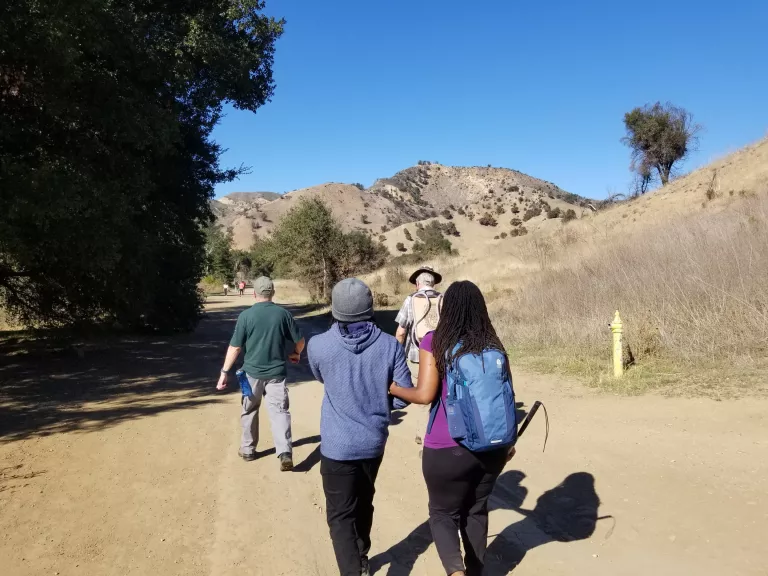
By Will McWhinney
Time spent in nature has been proven to offer many physical and psychological benefits. But in many cases those benefits aren't available to those who don't drive cars. That includes the impoverished and the disabled.
The Sierra Club was founded with a mission to "render accessible" the mountain regions of the Pacific west. Locally, club entities such as Inspiring Connections Outdoors (ICO) and the Central Group recruit volunteers and raise money to take poor children and visually impaired adults on mountain trips. These trips are necessarily limited in size and frequency, and by the tastes of the leaders. People from all walks of life should have opportunities to access nature on their own terms.
In 1911, when the Angeles Chapter was founded, anyone (with enough cash) could take a train up into the front range of San Gabriel Mountains. But travelling deeper into the range was very difficult due to lack of roads and trails. Nowadays, there are many more ways to visit nature but access is often limited to people who own and drive cars.
Among the challenges to greater access are costs, reliability, and education. An initiative by U.S. Rep. Judy Chiu, D-Pasadena, will fund a shuttle from the Metro L Gold Line for some weekend trips to the top of Mt Wilson and trailheads along the way. Nature For All, which promotes access to the local mountains, is seeking a shuttle for Highway 39, following the San Gabriel River gorge. Because of the expense, these shuttles have to be heavily subsidized and so the programs struggle with steady funding. A shuttle which has received consistent support travels to the Baldwin Hills Scenic Overlook and the Kenneth Hahn State Recreation Area. However it has been unreliable. Micro Metro, an on-call service being tested in selected MTA areas, will take small groups to a few trailheads, including the Cobb Estate for the Sam Merrill Trail.
Access to trails on the edge of the urban core is uneven. Mass transit routes tend to avoid thinly populated areas, of course. Rideshare services can be expensive, unreliable, and complicated, especially for a group. The local paratransit service, ironically named Access, is limited to places with street addresses that are near mass transit routes, and is also unreliable. Small administrative changes to alter stops and routes, for example, could make near-urban nature much more accessible. Reliability is important because people need to trust that they'll be dropped off and picked up again in the right place at the right time.
Another challenge is educating the public about the access opportunities that exist, along with the basics of travel in nature. Providing that information should be relatively low-cost and low effort for transportation services and land managers.
What can we do? Advocate to agencies to prioritize access to nature, and educate people about the opportunities where they exist.